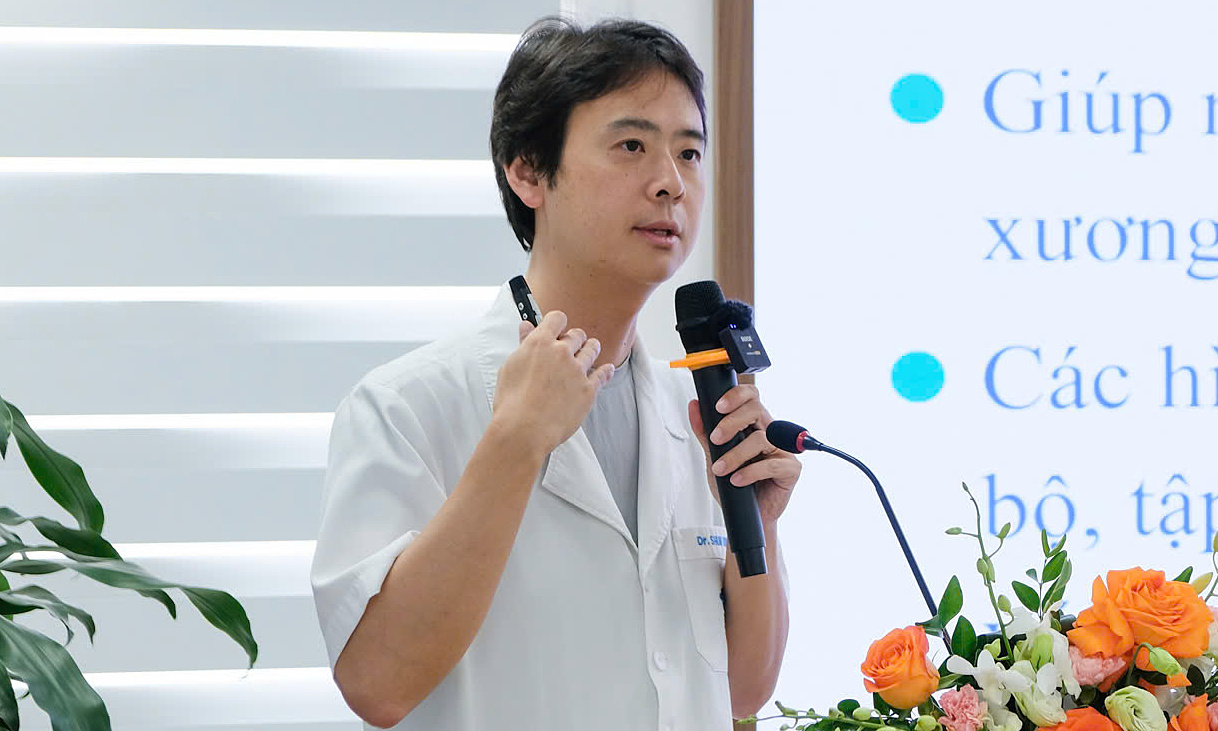At a recent seminar on identifying and managing high-risk diseases in middle-aged and older adults, Dr. Shun Kubo from the Department of Internal Medicine at Viet Phap Hanoi Hospital, shared four simple lifestyle changes that can help people live healthier, longer lives. The seminar was part of a series of events to show appreciation to patients, commemorating the hospital's 28th anniversary.
Here are the simple, achievable lifestyle changes that contribute to a healthy and long life:
Exercise
Exercise protects both physical and mental health, helping maintain independence and well-being. Specifically, it helps protect muscles and bones, contributing to the prevention of falls, fractures, and muscle weakness in older adults. Exercises such as walking, stretching, or chair exercises are all beneficial.
For cardiovascular health, exercises like walking, cycling, and light jogging strengthen the heart and blood vessels, improve blood circulation, and prevent hypertension, diabetes, and stroke. In Vietnam, these chronic diseases are on the rise, making exercise a cost-effective preventative measure.
Many studies have also shown that regular exercise keeps the brain agile, improves blood flow, reduces the risk of dementia, and enhances mood and memory.
"The important thing is to maintain a regular routine. There's no need for strenuous or prolonged workouts; exercise moderately and consistently," Dr. Kubo advised. The World Health Organization (WHO) recommends that adults engage in at least 150 minutes of moderate-intensity activity or 75 minutes of high-intensity activity per week. Combining this with muscle-strengthening exercises twice a week yields maximum benefits.
Balanced diet
As we age, our metabolism slows down. Overeating can increase the risk of obesity, hypertension, and diabetes. Dr. Kubo noted that within the rich culinary culture of Vietnam, controlling food intake is crucial.
He emphasized that "there are no miracle foods" that guarantee health or longevity. Consuming too much of even a "good" food can lead to nutritional imbalances. Therefore, the key is to eat a diverse and balanced diet, control portions, reduce salt, and drink plenty of water. It's advisable to drink small amounts frequently throughout the day and limit alcoholic beverages.
 |
The doctor shared secrets to healthy living and disease prevention. *Photo: Hospital provided* |
Proper use of supplements
Supplements are not medicine. They should only be used to address confirmed deficiencies and under a doctor's guidance. Overuse can be harmful. For example, excessive vitamin A can damage bones and the liver, while too much vitamin E increases the risk of bleeding. Similarly, excess calcium can lead to kidney stones and affect cardiovascular health.
Therefore, to determine if you need supplements, consult a doctor for an examination and necessary tests. They can identify any deficiencies and provide appropriate advice.
Regular check-ups
According to Dr. Kubo, the absence of symptoms doesn't mean the absence of disease. This is especially true for older adults, many of whom have underlying conditions they are unaware of. Early detection makes treatment easier and more effective. Dr. Kubo recommends making regular health check-ups a habit.
Le Nga












